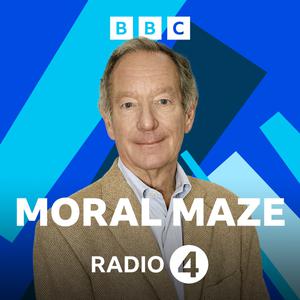
Moral Maze
BBC
Combative, provocative and engaging live debate examining the moral issues behind one of the week's news stories. #moralmaze
- 56 minutes 19 secondsThe morality of forgiveness
The Legacy Act in Northern Ireland provides a conditional amnesty for people who committed crimes during the Troubles, as part of a broader process of reconciliation. It’s an attempt to draw a line under events of the past, but it’s generated anger among the families of some victims, who feel they’ll be denied justice. When things go wrong, we need to find people to blame. Who’s responsible? Who should be punished? But might we do better if we were prepared to blame less – prioritising the truth, and forgive more? It's been proposed that the NHS adopts a no-blame system where staff don’t lose their jobs if they admit a failure, so the NHS learns quickly from its mistakes. The “no-blame culture” idea already exists in parts of the US aviation industry where people are encouraged, even praised, for owning up to mistakes that could cost lives. If blame means disgrace and the end of a career, it’s hardly surprising that people hide the truth about their own failure. How many of us would admit it quickly, if we discovered that a mistake at work had led to terrible consequences? More forgiveness might lead to greater openness and honesty. It could make it easier to avoid mistakes being repeated. But is it moral to forgive serious wrongdoing? Where is the justice in that? Surely the fear of blame is a powerful incentive for us all to do our jobs properly and avoid mistakes. Do we need more forgiveness – or less?
Presenter: Michael Buerk Producer: Jonathan Hallewell Assistant Producer: Ruth Purser Editor: Tim Pemberton
7 March 2024, 11:02 am - 56 minutes 40 secondsThe morality of work
Many people seem to be going off the idea of work. In the UK there are more than nine million people who are "economically inactive". Some are unemployed, some are students, others are not actively looking for a job or available to start work. There’s no shortage of jobs, but people are choosing not to take them. Many people decided not to return to work after the Covid lockdowns. They reduced their working hours or took early retirement, choosing the golf course over the office. For some, it’s a moral failure that so many are economically inactive. But why do we ascribe such virtue to the idea of work?
Politicians endlessly refer to "hard working families", perhaps inducing a sense of entitlement among workers, but in the process stoking resentment against those who don't work. Of course the economy relies on work - the wheels only turn when enough people are employed and paying tax.
Some believe the benefits system is to blame - if it's too comfortable not to work - then why bother? But there’s also the broader societal shift where people choose to work less, or not at all and live a more modest but perhaps less stressful life. Is this a laudable position, where people prioritise wellbeing over wealth and status, or a selfish one that denies the collective responsibility we all bear to contribute to society, through labour and taxes? The personal value of work might feel clearer if your job is rewarding and well paid, but less so if you’re on a low income. What is the moral value of work?
Presenter: Michael Buerk Producer: Jonathan Hallewell Assistant Producer: Ruth Purser Editor: Tim Pemberton
28 February 2024, 10:19 am - 56 minutes 25 secondsThe morality of immigration
This week it emerged that Abdul Ezedi, hunted by police after an attack on a woman and her daughters with a corrosive liquid, was granted asylum after being convicted of sexual assault. He'd converted to Christianity, which could have put him at risk in his native Afghanistan. It’s just the latest story stirring debate about one of the most divisive issues of our times - immigration. In 2022 net migration hit a record 745,000. That’s more people than live in many of Britain’s biggest cities. Last week the Office for National Statistics predicted that the population could rise by nearly 10% between 2021 and 2036. The overwhelming majority of immigrants are legal. Economists are split on the costs and benefits of immigration. Some suggest that it could help tackle a demographic timebomb as our population ages. Britain also attracts some of the world’s most capable and highly qualified people, driving up our wealth-creating potential. National life is enriched culturally and socially. Isn’t there also a moral imperative to open our doors to people from countries troubled by war, oppression and climate change? But immigration has been high for decades without a clear electoral mandate. Some neighbourhoods have been transformed, raising concerns over social cohesion. It’s added to the pressure on housing and on creaking public services. Is it right that whole industries rely on immigrants willing to work for low pay – social care, health and hospitality? What is a desirable level of immigration? How should the balance be struck between the demands of our economy and social cohesion? What’s the moral case for immigration?
Presenter: Michael Buerk Producer: Jonathan Hallewell Assistant Producer: Linda Walker Editor: Tim Pemberton
26 February 2024, 12:59 pm - 55 minutes 44 secondsThe morality of marriage
It’s Valentine’s Day, when we celebrate romantic love, and is there anything more romantic than getting married? It’s the way all those old films end, after all the “will they, won’t they”, the couple finally tie the knot, the titles roll and we all enjoy the warm certainty that they’re sorted for life. What’s not to love about marriage? A lifelong commitment to care for each other... a solemn promise rooted in love… perhaps the foundation for starting a family. But for many, marriage is losing its gloss. The latest government figures suggest that the proportion of adults in England and Wales who are married has, for the first time, fallen below 50%. The rise of pre-nuptial agreements signals a change in levels of confidence about marriage. Is forever still forever? If it probably isn’t – then let’s just plan ahead for when it all goes wrong. We live much longer than in the past, so “til death us do part” is likely to be a very long time indeed. Perhaps it’s now unreasonable to expect a lifelong commitment. Short of that, are human beings even built for monogamy? If love dies in a marriage, should that be the end, or is marital commitment broader than that? There is some evidence that outcomes for children are better if parents are married, and some people see it as a fundamental building block of society. But is there a moral value to marriage? Is it a striving for what is finest about being human, the highest realisation of not just romantic love, but of that important social unit – the couple? Or just an old fashioned idea, rooted in outdated traditions, all wrapped up in a sentimental rose tinted fantasy?
Presenter: Michael Buerk Producers: Jonathan Hallewell and Peter Everett Assistant Producer: Ruth Purser Editor: Tim Pemberton
26 February 2024, 9:44 am - 56 minutes 53 secondsThe moral case for veganism
It emerged this week that scientists in South Korea have created a new kind of “meaty” rice, with high levels of protein. The grains are packed with beef muscle and fat cells – all grown in a lab. It’s just the latest of many meat-alternatives that are helping people to eat less meat. Supermarkets are responding to public demand by offering an ever wider choice of plant-based foods. But while we might not need to eat meat, most of us really enjoy it.
The goal posts are shifting in the age old debate about the morality of meat. Whatever you think about the industrial breeding of animals, to be slaughtered and served up for our pleasure, there’s now another compelling argument for us to stop, or at least cut back – meat production significantly contributes to climate change.
In the last decade, the number of vegans in the UK has increased steeply, but it’s still small. Estimates vary between about 2% and 3% of the population. Many more are vegetarian, who avoid meat and fish, but eat dairy. There are also flexitarians, who mainly choose a plant-based diet, but do occasionally eat meat.
A moral argument that was once focused on whether humans have the right to exploit animals has become a broader debate that includes protecting the planet for future generations. Some say it’s natural for humans to eat meat, indeed we have evolved to do so. Others think it’s barbaric and the effects of the meat and dairy industry on the climate have made the argument for veganism overwhelming. What’s the moral case for veganism?
Presenter: Michael Buerk Producer: Jonathan Hallewell Assistant Producer: Ruth Purser Editor: Tim Pemberton
26 February 2024, 9:34 am - 56 minutes 53 secondsThe Purpose of Punishment
The last week saw two contrasting examples of how societies treat killers. Valdo Calocane, who killed three people in Nottingham and tried to kill three more, avoided jail and was instead sent to a secure hospital for life because of his mental illness. One of the victim’s relatives protested that he “got away with murder”. Meanwhile in America, convicted murderer Kenneth Smith became the first person in the US to be executed using nitrogen gas.
Calocane’s charge was reduced to manslaughter on the grounds of diminished responsibility because of his paranoid schizophrenia. The mother of one of his victims objected and complained that the families were not consulted. The Attorney General will be reviewing the sentence. It’s raised questions about what punishment is for: Is it for criminals – to provide the suffering they deserve, or reform them or deter future offenders? Or is it for victims – providing retribution and a sense of fairness to them? Victims are uniquely placed to appreciate the true impact of crime, so shouldn't their perspective have a greater weight in the judicial process? Would a bigger role for victims improve or hinder justice? What’s the purpose of punishment and can it ever provide justice for the most serious offenders, and their victims?
Presenter: Michael Buerk Producer: Jonathan Hallewell Assistant Producer: Linda Walker Editor: Tim Pemberton
1 February 2024, 11:26 am - 56 minutes 47 secondsUkraine - the moral case for ceding land for peace
It’s now nearly two years since Russia began its full scale invasion of Ukraine. Hopes that Ukraine might seize back its territory have been dashed, in a conflict that’s become deadlocked. At first it felt clear – the invasion is wrong, Putin must fail and be seen to fail, Ukraine’s defiance and bravery must be supported with everything its allies can provide. But as the death, destruction and bloodshed continues, with little sign of progress on either side, questions have been raised about how the war might ever be brought to an end.
How realistic is it for Ukraine to aspire to recapture all of its land, even Crimea? This year’s US presidential election has sharpened the focus: A Trump victory could threaten Ukraine’s future supply of arms. Some believe Russia would settle for the land it has already captured. If so, for Ukraine the bitter pill of ceding some 20% of its territory would at least bring the war to an end. But what’s the moral case for this? What’s the real value of peace – bought at the cost of justice? If western powers are seen to allow aggression to win the day in Ukraine, what message would that send to Vladimir Putin and other tyrants around the world? In Ukraine, what’s the moral case for ceding land for peace?
Presenter: Michael Buerk Producer: Jonathan Hallewell Assistant Producer: Linda Walker Editor: Tim Pemberton
26 January 2024, 12:31 pm - 56 minutes 16 secondsIs it time to allow assisted dying?
Nearly a decade since MPs in Westminster voted against allowing terminally ill people to end their own life, assisted dying is climbing back up the political agenda. The Health and Social Care Committee is due to publish the first report of its kind on the subject after a year-long inquiry. Meanwhile, the Labour Leader Sir Keir Starmer has said there are "grounds for changing the law”, UK medical bodies continue to drop their opposition to the idea, and polls suggest around two-thirds of the public are in favour. Assisted dying raises profound moral questions which shake the core of our humanity. What does it mean to live – and to die – well? Is it more dignified to live with suffering or to die without it? If life is a sacred gift, and a marker of our equal dignity, should we, or anyone else, be able to control when it ends? If death is the most dignified response to suffering, how much suffering is too much, and who should decide?
Those who describe constant physical pain and a loss of bodily autonomy say that isn’t living at all. Should we be guided principally by compassion in these situations? Or does the good intention of irradicating suffering risk a chilling effect in which people are pressured into re-appraising whether their lives are worth living?
Is it time to allow assisted dying?
Panel: Mona Siddiqui, Inaya Folarin Iman, Matthew Taylor, Giles Fraser
Witnesses: Rabbi Dr Jonathan Romain, Professor Kevin Yuill, Zoe Hyatt Marley, Dr Miro Griffiths
Producer: Dan Tierney.
18 January 2024, 11:06 am - 56 minutes 48 secondsIdentity Labels
Is it moral to attach identity labels to ourselves and others? We often label people by nationality, gender, sexuality, ethnicity, religion, disability and many more categories. Is this a good and helpful or something that should be avoided?
The King has said that he wants the UK to be ‘a community of communities’, whereas some commentators have said that this is a call for permanent racial division in our society. Have the use of labels increased or diminished racism and other forms of prejudice society?
Labels can identify an individual as a member of a collective. Others want the unique identity of each of us to be respected for its differences from everyone else. If our loyalty should be to a group, should that group be defined by the colour of its skin, its politics or its passports?
Panellists: Giles Fraser, Sonia Sodha, Tim Stanley & Ash Sarkar Producer: Peter Everett
22 November 2023, 10:51 am - 56 minutes 22 secondsShould politics be guided by public opinion?
Should politicians respect, despise, accommodate or ignore public opinion?
Rishi Sunak is looking for a policy he can pop into place between now and the general election that will avoid a Labour landslide. He is being advised that abolishing inheritance tax will tickle the tummies of the Tory not-so-faithful. Meanwhile, Sir Keir Starmer wants government planners to “bulldoze” local objections when deciding where to put new housing developments. Can a government get away with ignoring public opinion? Well, it can in constituencies it’s never going to win.
Politics nowadays is not merely ‘guided’ by polls, surveys, databases and focus groups… it is controlled by them. But is that good for the country? Is the advice they generate either wise or moral? Are the public obsessed with issues that don’t matter, while they ignore the ones that do? There is a case to be made against taking any notice of what the public thinks about anything. We know that the public thinks short-term, and that its opinions on political issues are ill-informed. Public opinion is inconsistent, incoherent and volatile.
And yet democracy is built on the principle that the majority must get its way. And it’s not just politicians (and Simon Cowell) who flatter the electorate with talk of the ‘wisdom’ of the Great British Public. Lots of people seem to think that majority opinion will usually be wise, kind and helpful. But then, many also believe the moon landing was staged.
Panellists: Anne McElvoy, Melanie Philips, Mona Siddiqui & Matthew Taylor
Presenter: Michael Buerk Producers: Peter Everett & Jonathan Hallewell Editor: Tim Pemberton
22 November 2023, 10:48 am - 56 minutes 57 secondsHow should we remember the dead and the living?
The Met police has warned of a "growing" risk of violence and disorder this Remembrance weekend. The Prime Minister has described a planned pro-Palestinian protest in London on Armistice Day as “provocative and disrespectful” to those who wish to remember the war dead “in peace and dignity”. The Chief Rabbi Ephraim Mirvis said it was "a stain on our common humanity" that so many seem to have "lost sight of the moral distance between Hamas and Israel". Others, however, strongly refute the description of the demonstrations as “hate marches”, believing that the protesters should be allowed to campaign for a ceasefire and an end to the killing; and to show solidarity with Palestinians without undermining either the remembrance events or the humanity of Israelis.
The polarising nature of the Israel-Hamas war and its repercussions in the UK has resulted in both sides accusing the other of ‘weaponising’ remembrance. Public attitudes to commemoration have changed over the last century and notions of a country honouring the ultimate sacrifice of its soldiers can be hard to disentangle politically from conflicts of the day.
What are we really doing on Remembrance Day? While for some it is a deep expression of sorrow for the dead and a formal commitment to peace, others believe it risks celebrating past acts of killing, which translates into justifying present militarism and violence. If rising conflicts around the world suggest humanity has not learned from the mistakes of the past – what is the moral purpose of remembrance? How should we remember the dead as well as those who are living through conflict today?
Producer: Dan Tierney.
10 November 2023, 2:41 pm - More Episodes? Get the App
Your feedback is valuable to us. Should you encounter any bugs, glitches, lack of functionality or other problems, please email us on [email protected] or join Moon.FM Telegram Group where you can talk directly to the dev team who are happy to answer any queries.
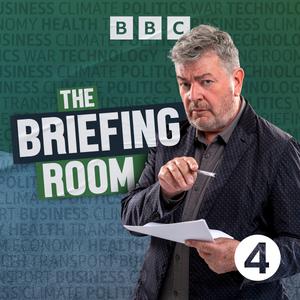 The Briefing Room
The Briefing Room
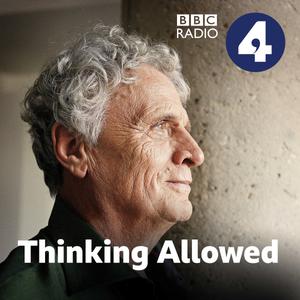 Thinking Allowed
Thinking Allowed
 Analysis
Analysis
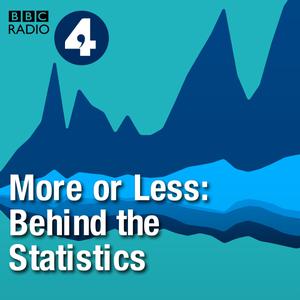 More or Less: Behind the Stats
More or Less: Behind the Stats
 A Point of View
A Point of View
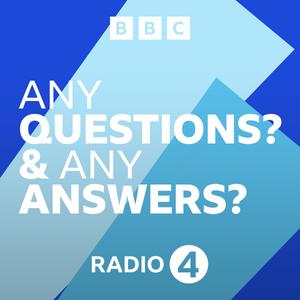 Any Questions? and Any Answers?
Any Questions? and Any Answers?